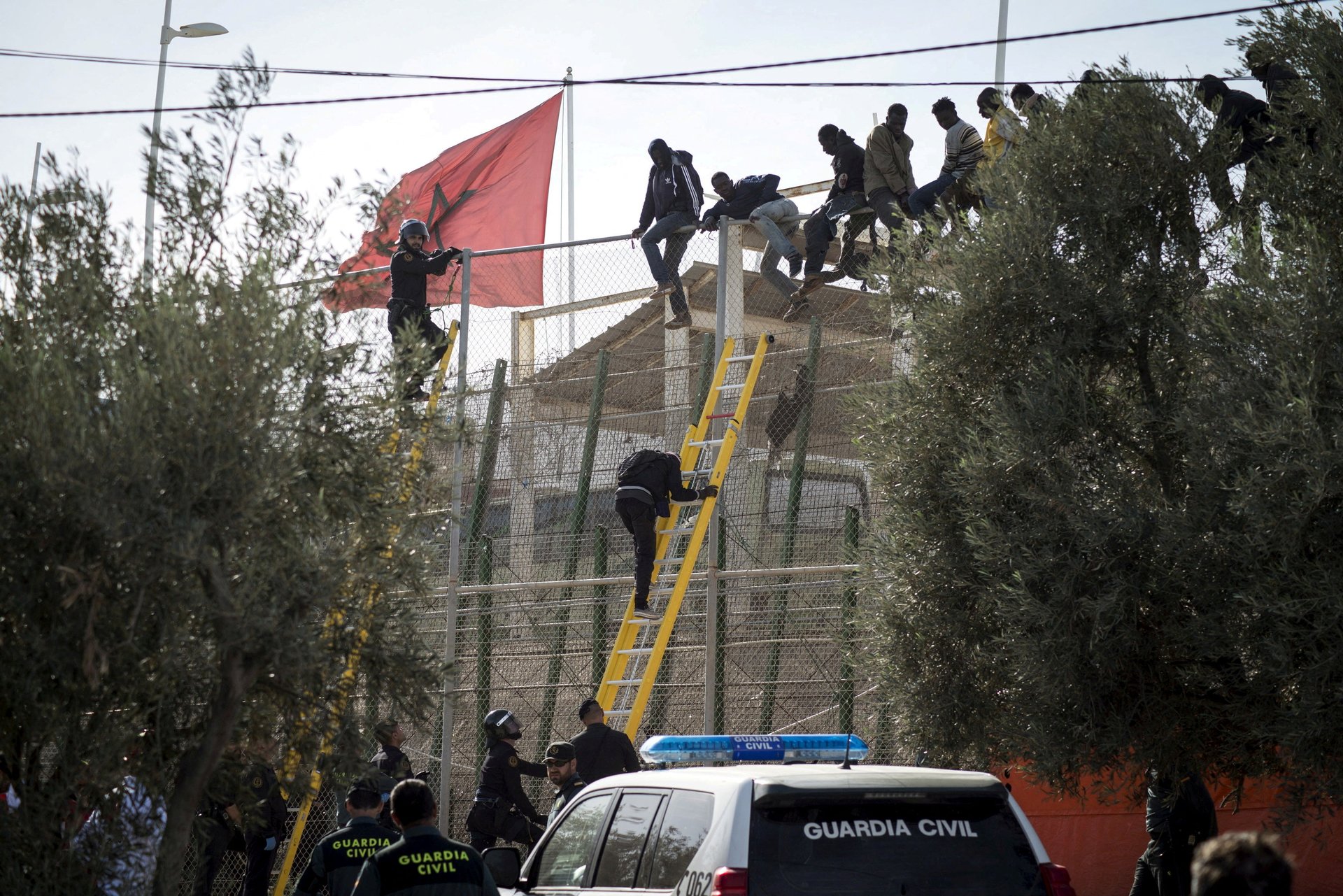Morocco is prosecuting migrants instead of rogue police forces
The Moroccan government has started prosecutions. But not on its police forces who coordinated with Spanish police to exert brutal force that contributed to the loss of 23 lives but on 65 of the 2,000 migrants who attempted to cross into the Spanish north African enclave of Melilla.


The Moroccan government has started prosecutions. But not on its police forces who coordinated with Spanish police to exert brutal force that contributed to the loss of 23 lives but on 65 of the 2,000 migrants who attempted to cross into the Spanish north African enclave of Melilla.
The Morocco-Spain border incident took place last Friday when African migrants were reportedly beaten with batons, kicked, shoved, and attacked with stones by Moroccan officials according to Office of the UN High Commissioner for Refugees spokesperson Ravina Shamdasani, in their attempt to scale the barbed-wire fence that separates Morocco from Melilla.
“We call on them [Moroccan and Spanish authorities] to take to all necessary steps alongside the European Union, the African Union, and other relevant international and regional actors – to ensure human rights-based border governance measures are in place,” Shamdasani told UN News.
While the official death toll stands at 23, the Moroccan Association of Human Rights (AMDH) organization said 29 migrants have died from the incident. One NGO said the number was 37. AMDH said bodies were left on the ground for hours and that Moroccan forces buried people without identifying them.
There has been condemnation of the cruel treatment of migrants at the Moroccan-Spanish border
In the wake of the incident, the African Union Commission chairperson Moussa Faki Mahamat issued a statement demanding an immediate investigation.
On June 28, the United Nations Committee for Migrant Workers (CMW) urged both the Moroccan and the Spanish governments “to conduct prompt, thorough, independent, impartial and transparent investigations into the deaths and to determine the corresponding responsibilities.”
The Moroccan government’s plan to prosecute migrants is a surprising one
It appears that the Moroccan authorities—despite mounting pressure from the international community—have chosen to apportion more blame to fleeing migrants than to forces that used excessive force and brutality. This is in a bid to discourage others from trying to emigrate to Europe.
A judicial source told Reuters that most of those being prosecuted are from Sudan and they face charges that range from attacking security forces, facilitating illegal border crossings, and igniting fires.
Though Spanish chief prosecutor on June 28 vowed to investigate the matter, prime minister Pedro Sanchez’s government is also not keen on taking action against police perpetrators of the violence and has only applauded Spanish and Moroccan collaboration on the border, saying the mass migration attempt was “well resolved.”
“We must remember that many of these migrants attacked Spain’s borders with axes and hooks,” Sanchez told AP during an interview on June 26.
“We are talking about an attempt to assault the fence that was evidently carried out in an aggressive way and therefore what Spain’s state security forces and Moroccan guards did was defend Spain’s borders.”
Sanchez blamed the tragedy on international human trafficking rings who he said have been profiting from “the suffering of human beings who only want to seek a better life.”
Migrants were crossing the border peacefully when Morocco and Spain had strained relations
In June 2021, 6,000 migrants surged across the Morocco border into Spain’s Ceuta enclave without any resistance from Moroccan border guards, widely seen as a punitive measure for Spain after it allowed Western Sahara’s leader Brahim Ghali to be treated for covid-19 in a Spanish hospital two months earlier.
Another 2,500 migrants and refugees from Africa tried to cross the nine-meter high iron border fence separating the Spanish enclave of Melilla from Morocco, with about 500 managing to do so on Mar. 2 this year.
But after the two countries mended relations the same month, migrants who attempted to cross the border last Friday were met with brutal force by both Moroccan and Spanish security forces. Only around 100 migrants managed to cross the border. Morocco and Spain have denied using excessive force.
A report released this month indicates that over half of Africa’s youth population are looking for ways to emigrate to Europe and the US, citing economic strife in home countries and search for new opportunities in developed economies as key reasons.